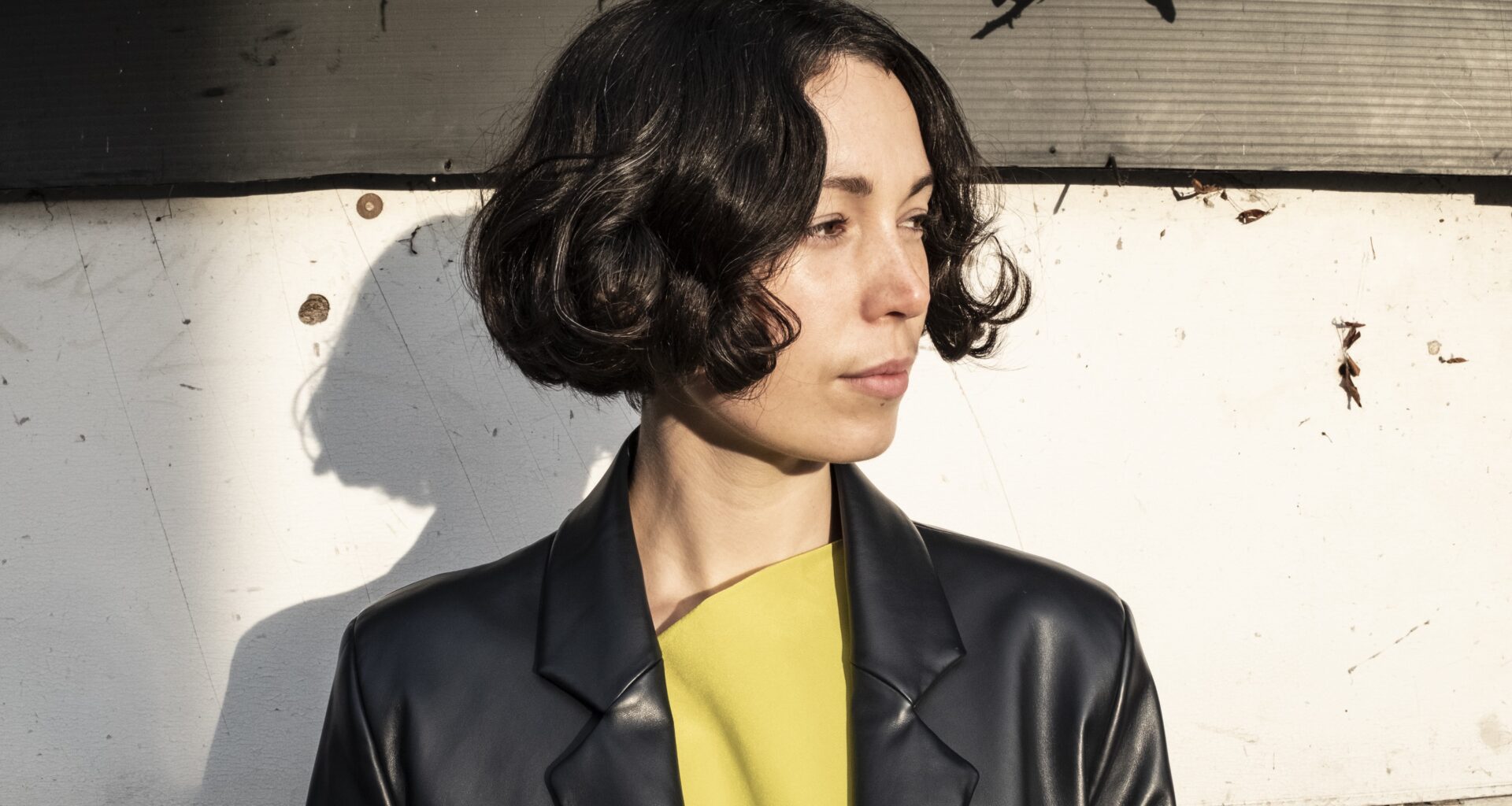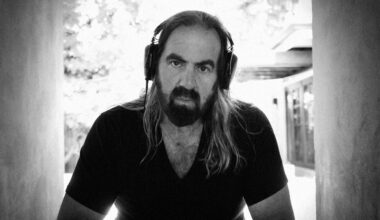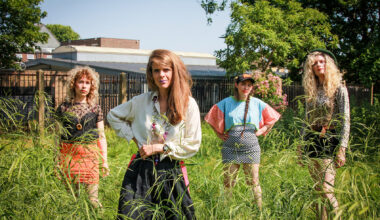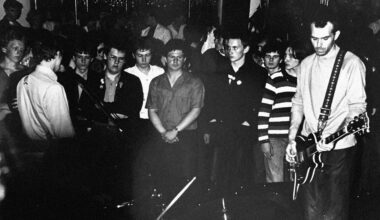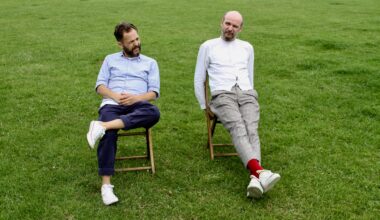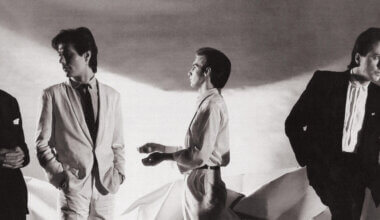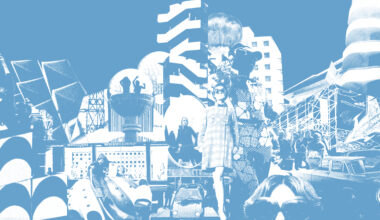Reaching for fresh heights with ’Inner Song’, Kelly Lee Owens mixes skilfully crafted lyricism and techno-tinged synthpop on one of the best albums you’ll hear this year
The sound of Kelly Lee Owens’ voice down the phone line from her home in London is as warm and sunny as the day is cold and wet.
“It’s odd weather, but as a Welsh person I’m kind of used to that,” she says. “It’s no wonder the Welsh are quite melancholic and hard. The weather means you have to be and you have the time to reflect if you’re indoors a lot.”
As the title of her new album suggests, Owens has been doing a lot of self-reflection. ‘Inner Song’, the follow-up to her acclaimed 2017 self-titled debut, was born from a period in her personal life when, by her own admission, she was having “a pretty shit time”.
Far from a catalogue of lamentation though, ‘Inner Song’ sweeps you off your feet. It’s a euphoric mix of electropop melodies and bristling techno beats, with Owens’ luminescent voice, which occupied a background space on her debut record, now tellingly front and centre. It’s a totally arresting collection of tracks with real emotional depth and a strong contender for one of the best albums of the year.
The interplay of pop vocals and tough beats is the yin and yang of the Kelly Lee Owens experience. It reaches its zenith with ‘On’, a mesmerising two-tracks-in-one composition that starts out as dreamy and downtempo, before Owens’ ethereal voice melts away, the tempo quickens, and the song flips on its head, morphing into a bustling, joyous dance of techno rhythms and low-end throbs. The tone of the track, of hope and acceptance, extends throughout ‘Inner Song’. Owens says she gravitates to the hope in every situation.
“It takes a lot of strength to really look at yourself,” she notes. “There’s a lyric in ‘On’ that says you ‘can only love as deeply as you see yourself’. The capacity to love gets more and more limited the less you’re willing to do that. We all deserve to be able to go inwards and face things, but we need support with that. Whether it’s through art, through therapy… there are many different ways and they’re all valid.”
In a year when it feels like the pause button has been pressed indefinitely, Owens has valued being forced to stop and reflect.
“In interviews, people keep asking me, ‘What have you been doing? Have you been creating?’, and I’ve been like, ‘Actually, no, for the first six weeks of lockdown I did fuck all!’. I didn’t exercise, I wasn’t eating great, but I was being compassionate with myself. It’s that capitalistic ideology of saying, ‘Well, the only way I can be valid as a human being is to “do”’. It’s bullshit.
“We have to keep asking, ‘Why are we here? Why are we feeling this way?’. Keep digging deeper. To the best of your ability, create space for yourself. I understand that the opportunity to do that is a luxury for a lot of people and that’s what is really fucked up. To have time is a luxury…? Sorry, I’m swearing quite a lot in this, but it does get me riled up.”
Owens is a staunch advocate of healing and a believer in the power of music to soothe the soul. When she was 19, she left Wales to work in Manchester as an auxiliary nurse in a cancer ward. She has spoken often about how that experience – and the encouragement of her patients – inspired her to pursue a career in music. Owens speaks frankly about the need to have more open conversations about death.
“The biggest sort of pain is caused by the avoidance of pain,” she says, paraphrasing the words of the Scottish psychiatrist and writer RD Laing. “We are so afraid to feel.”
When I raise the old adage about the only certainties in life being death and taxes, she laughs.
“Yes, and we talk about taxes more!” she exclaims. “Instead of an annual tax return, there should be an annual death review. We should be asking, ‘Where are you at with your life?’. To die well is to have lived a good life. Not that everyone has the same privileges. I’m so aware of my absolute privilege as a white woman. But it usually comes back to the basics of being surrounded by your family and loving people, having good food, being close to nature. Sociability, community… that’s what matters.”

Owens’ rural upbringing factors into her spiritual outlook. She feels deeply connected to the natural world, a sentiment that is reflected in the last track on ‘Inner Song’, the environmental anthem ‘Wake-Up’.
“The lyric ‘Never pausing to take it in / Always avoiding your sense of dread’ describes where we were as a world. The way we were heading, I don’t think it was sustainable. I think deep down we knew that and we were already grieving. We have been going through a collective grief over all the things that have been happening on this planet for a long time.”
‘Re-Wild’ is another call to arms, an atmospheric rumble of bass frequencies overlaid with Owens’ huge, soulful vocals. The track recalls the synthpop of The Knife and Owens describes the Swedish duo as her “crossover” into electronic music. When she moved to London in 2009, she was playing in indie bands – most notably the shoegaze outfit The History Of Apple Pie – and working at various record shops, including Pure Groove. It was there that she met and became friends with Daniel Avery, Erol Alkan and James Greenwood (aka Ghost Culture), who all encouraged her to craft her own beats. She says coming from an indie background has definitely given her a different perspective on making electronic music and has helped her to shape her unique sound.
“The biggest thing I took from it was the melodic element, which is very strong,” she says. “I also love drums. They were my first instrument and they are the most primal, beautiful thing. Then I played bass, so the rhythm section is everything to me.”
Around the time that Owens was working at Pure Groove, the German electronic music store SchneidersLaden set up a “testsalon” inside Rough Trade East.
“It blew my mind,” she says. “I love how physical analogue equipment is. That physicality is really important to me. I’m an analogue girl – I love vinyl, I worked in record stores, I don’t have digital books. Machines are great, but when a human collaboration happens, that’s where the alchemy is.”
Which brings us to one of the most captivating tracks on ‘Inner Song, ‘Corner Of My Sky’, which Owens recorded with The Velvet Underground founder and avant-garde pioneer John Cale. At over seven minutes, it’s the longest cut on the album and perhaps the most experimental. Cale’s voice is utterly compelling in its delivery, as the song unfolds over an undulating rhythm and an array of cosmic bleeps. It’s a great example of how few tracks are created by female producers featuring a male vocal.
There’s also the Welsh connection with John Cale, of course.
“It would be quite funny if he was just my neighbour,” giggles Owens. “But no, unfortunately not. We have the same press people in America. I was in LA and John spends most of his time there now. We were going to have a cup of tea… classic! Welsh people love a cup of tea!”
Due to their conflicting schedules, the cup of tea in Los Angeles didn’t happen, but Owens later found herself invited to Cale’s studio in London to record some vocals.
“In a booth the size of my house,” she laughs. “It was a wild experience. I’d had a cold and a really bad voice for a week, but I did what I usually do and threw myself in the deep end. I’m someone who records my vocals myself, because I can’t have anyone else in the room. It’s a very intimate, personal thing for me. John pushed me to reach a high note I’ve never got to before… or since. He has that old school producer charm that drives you to beyond. I really saw that in action and I’m grateful to have been part of that.”
‘Corner Of My Sky’ developed out of this encounter.
“For me, it’s about my home,” explains Owens. “It’s about roots and exploring the land, so I asked John if he would want to talk about Wales and his connection to it. If you don’t ask, you don’t get!”
The song ends with Cale’s barely audible voice uttering the beautiful line, “I’ve lost the bet that words will come and wake me in the morning”.
“It’s very vulnerable,” agrees Owens. “For a man in his 70s to say something like that, it’s very poignant. I can’t speak for him, I don’t know what it references, but for me it’s about life and death and rebirth. The song had to end there because it’s just so thought-provoking.”
In many ways, the music that Kelly Lee Owens makes is a matter of life and death. As she sees it, death is as much about the shedding of old skin and the emergence of a new self as it is about grief and loss. Talking about death also allows us to relate to loved ones. In Owens’ case, this meant naming one of the tracks on the album – the spiralling, pulsing, uptempo ‘Jeanette’ – after her late grandmother. What would she have made of the track?
“She loved to dance,” says Owens, her voice lighting up. “She was literally my number one fan. She was there at my first-ever show and she got up onstage with me a few times. This woman supported me in everything I did and she is in everything I do, so I wanted to name a track after her. And on the vinyl copies of the album, her name is in the groove. That song is very uplifting. And she was uplifting. That’s her energy. It’s pure sunshine.”
As for what happens when we die, Owens says that growing up in Wales has made her less afraid of having those conversations.
“In a sense, it’s a culture that’s imbued with magic and an understanding of the spiritual. There are a lot of psychics and mediums about. That’s a regular thing that my family and I will do, we’ll go to a medium. It’s very normal for us! So my whole life, I’ve kind of been connected to the idea of a life beyond. But the best thing we can all do is love people and protect our planet while we’re here. No matter what you think happens afterwards, it’s about taking care of everything now.”
Get the print magazine bundled with limited edition, exclusive vinyl releases

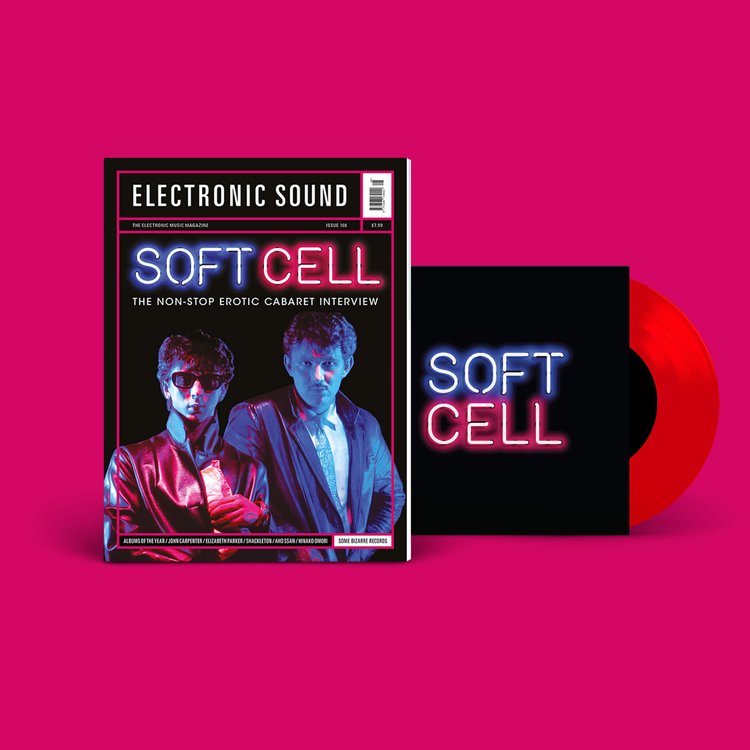
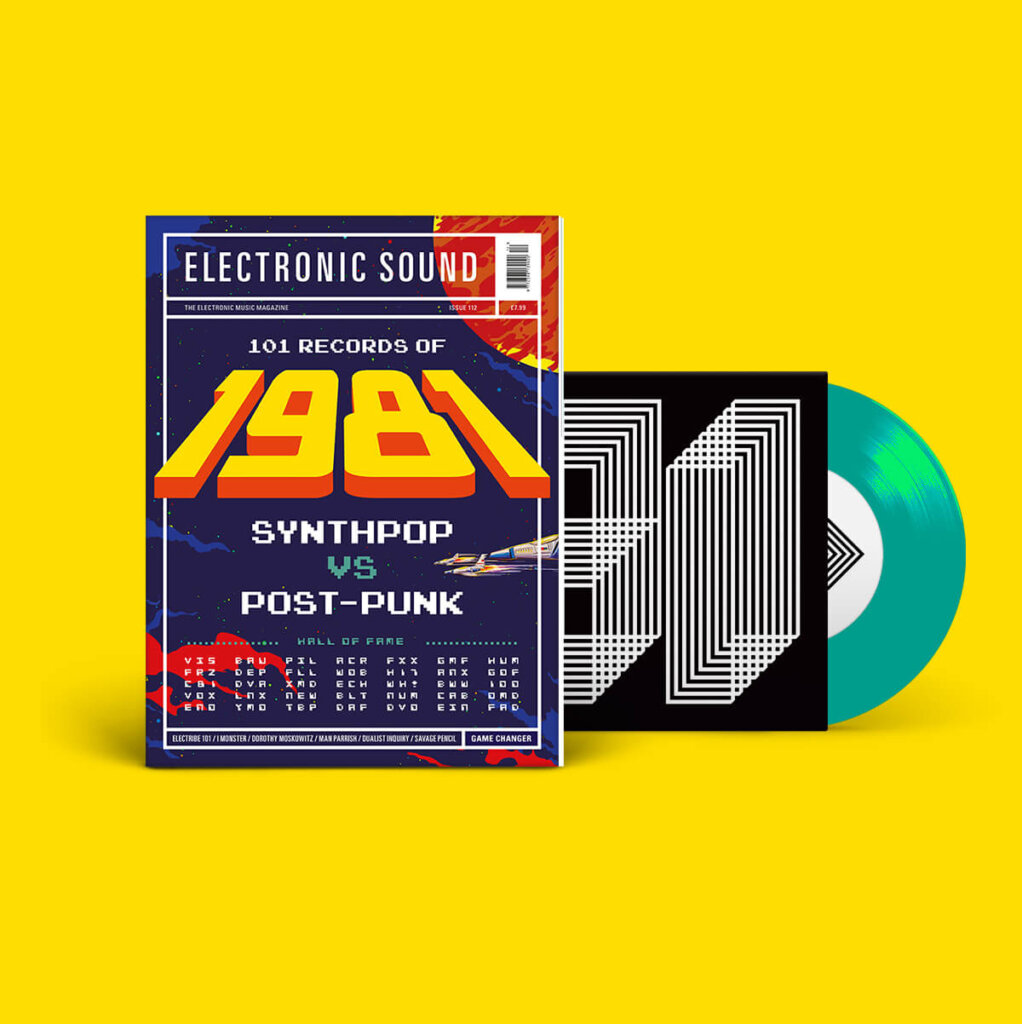
The circle of life and death and rebirth brings us back to ‘On’. Aside from its musical vibrancy, what’s striking about the track is the pronounced self-awareness that emanates from Owens’ lyrics. Could she have written something like that 10 years ago? Or is that self-awareness a product of age and maturity?
“No way,” she replies. “Ten years ago, absolutely not. It’s funny, because we talk about age as such a negative thing, and again that relates to societal structures, especially for women. I believe in all the stages of womanhood. The one I am most excited about is the stage of the crone – entering older womanhood and the wisdom that comes with that, and the shedding of the fact that I don’t need to attract a mate. I’m going to let it all hang out!
“Unfortunately, self-awareness often comes through pain. But I think we’re working towards a generation that hopefully won’t have to experience that in order to be self-aware. That’s the goal, undoing the ancestral trauma bonds. And doing the work so that those who come after us don’t have to. For me, that’s my path in this lifetime.”
In the case of ‘Inner Song’, that path is the sound of an artist bravely venturing down the darkest tunnel – and rejoicing in the light they’ve found at the other end.
‘Inner Song’ is released by Smalltown Supersound
